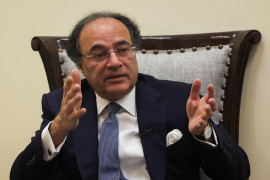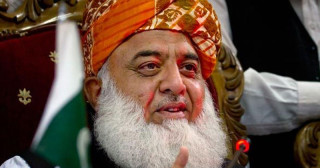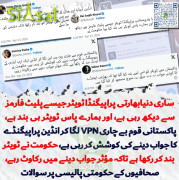bisaat
Banned
Local zeroes
By Nadir Hassan
September 10, 2016
Waseem Akhtar will be Karachi’s least powerful mayor in recent history. The problem isn’t his incarceration. Politicians in Pakistan tend to serve long prison sentences between short spaces in power so Akhtar is just putting a down payment on a future home. His wings were clipped by the provincial government before he could learn to fly.
During the five years when Sindh was being governed by a mishmash of the commisionerate and township systems, the PPP government went about grabbing as many powers as it could– powers which previously rested with the mayor. It accelerated the process in the last year, even while first cynically delaying holding local elections and then transferring whatever powers were left to the new representatives.
In April, an amendment was added to the Sindh Local Government Act allowing the provincial government to ‘monitor’ local government representatives, which was intended to be as creepily Orwellian as it sounds. Municipal and metropolitan corporations, in a section meant to empower them, had most of that power taken away by a caveat forbidding them from carrying out duties already assigned to other agencies – which meant pretty much every conceivable power.
The PPP also wants all the trash. Last year, it set up the Sindh Solid Waste Management Board and put it under the control of the chief minister, making him the ultimate figure responsible for collecting and disposing garbage across the province and – maybe more importantly – control over the funds and assets that were previously vested in municipal and metropolitan corporations and committees. Just a week before the mayoral elections were held, the provincial government took charge of the Jam Chakro and Gond Pass landfills on paper. Then it realised that the Karachi Metropolitan Corporation owed contractors about Rs180 million and declined to start operating it till the liabilities were cleared.
The nearly-toothless KMC also washed its hands off the matter. Not that the KMC would have been able to exercise any of its powers even if they hadn’t been snatched away from them. The Sindh government hasn’t bothered to follow its own local government bill and set up a financial commission to distribute money to local representatives.
Similarly, the Karachi Building Control Authority was replaced with the new Sindh Building Control Authority while the Karachi Water and Sewerage Board, the Karachi, Lyari and Malir Development Authorities and the master plan department are all under the provincial government. So the PPP wants to control all land and water and all solid and liquid excrement in Karachi.
The PPP will never admit this but it at least has the realpolitik reason of wanting to keep as many powers as it can away from its MQM rivals. It has done so with ease thanks to its majority in the Sindh Assembly and without any public outcry thanks to the MQM’s ongoing pariah status.
By Nadir Hassan
September 10, 2016
Waseem Akhtar will be Karachi’s least powerful mayor in recent history. The problem isn’t his incarceration. Politicians in Pakistan tend to serve long prison sentences between short spaces in power so Akhtar is just putting a down payment on a future home. His wings were clipped by the provincial government before he could learn to fly.
During the five years when Sindh was being governed by a mishmash of the commisionerate and township systems, the PPP government went about grabbing as many powers as it could– powers which previously rested with the mayor. It accelerated the process in the last year, even while first cynically delaying holding local elections and then transferring whatever powers were left to the new representatives.
In April, an amendment was added to the Sindh Local Government Act allowing the provincial government to ‘monitor’ local government representatives, which was intended to be as creepily Orwellian as it sounds. Municipal and metropolitan corporations, in a section meant to empower them, had most of that power taken away by a caveat forbidding them from carrying out duties already assigned to other agencies – which meant pretty much every conceivable power.
The PPP also wants all the trash. Last year, it set up the Sindh Solid Waste Management Board and put it under the control of the chief minister, making him the ultimate figure responsible for collecting and disposing garbage across the province and – maybe more importantly – control over the funds and assets that were previously vested in municipal and metropolitan corporations and committees. Just a week before the mayoral elections were held, the provincial government took charge of the Jam Chakro and Gond Pass landfills on paper. Then it realised that the Karachi Metropolitan Corporation owed contractors about Rs180 million and declined to start operating it till the liabilities were cleared.
The nearly-toothless KMC also washed its hands off the matter. Not that the KMC would have been able to exercise any of its powers even if they hadn’t been snatched away from them. The Sindh government hasn’t bothered to follow its own local government bill and set up a financial commission to distribute money to local representatives.
Similarly, the Karachi Building Control Authority was replaced with the new Sindh Building Control Authority while the Karachi Water and Sewerage Board, the Karachi, Lyari and Malir Development Authorities and the master plan department are all under the provincial government. So the PPP wants to control all land and water and all solid and liquid excrement in Karachi.
The PPP will never admit this but it at least has the realpolitik reason of wanting to keep as many powers as it can away from its MQM rivals. It has done so with ease thanks to its majority in the Sindh Assembly and without any public outcry thanks to the MQM’s ongoing pariah status.




















































